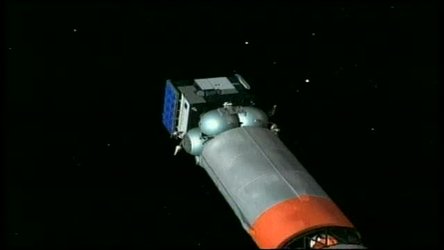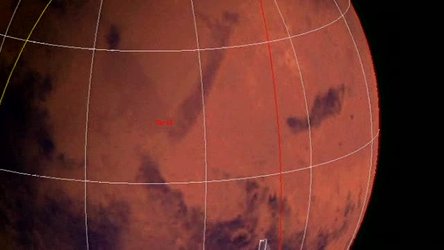Accept all cookies Accept only essential cookies See our Cookie Notice

About ESA
The European Space Agency (ESA) is Europe’s gateway to space. Its mission is to shape the development of Europe’s space capability and ensure that investment in space continues to deliver benefits to the citizens of Europe and the world.
Highlights
ESA - United space in Europe
This is ESA ESA facts Member States & Cooperating States Funding Director General Top management For Member State Delegations European vision European Space Policy ESA & EU Space Councils Responsibility & Sustainability Annual Report Calendar of meetings Corporate newsEstablishments & sites
ESA Headquarters ESA ESTEC ESA ESOC ESA ESRIN ESA EAC ESA ESAC Europe's Spaceport ESA ESEC ESA ECSAT Brussels Office Washington OfficeWorking with ESA
Business with ESA ESA Commercialisation Gateway Law at ESA Careers Cyber resilience at ESA IT at ESA Newsroom Partnerships Merchandising Licence Education Open Space Innovation Platform Integrity and Reporting Administrative Tribunal Health and SafetyMore about ESA
History ESA Historical Archives Exhibitions Publications Art & Culture ESA Merchandise Kids Diversity ESA Brand Centre ESA ChampionsLatest
Space in Member States
Find out more about space activities in our 23 Member States, and understand how ESA works together with their national agencies, institutions and organisations.
Science & Exploration
Exploring our Solar System and unlocking the secrets of the Universe
Go to topicAstronauts
Missions
Juice Euclid Webb Solar Orbiter BepiColombo Gaia ExoMars Cheops Exoplanet missions More missionsActivities
International Space Station Orion service module Gateway Concordia Caves & Pangaea BenefitsLatest
Space Safety
Protecting life and infrastructure on Earth and in orbit
Go to topicAsteroids
Asteroids and Planetary Defence Asteroid danger explained Flyeye telescope: asteroid detection Hera mission: asteroid deflection Near-Earth Object Coordination CentreSpace junk
About space debris Space debris by the numbers Space Environment Report In space refuelling, refurbishing and removingSafety from space
Clean Space ecodesign Zero Debris Technologies Space for Earth Supporting Sustainable DevelopmentLatest
Applications
Using space to benefit citizens and meet future challenges on Earth
Go to topicObserving the Earth
Observing the Earth Future EO Copernicus Meteorology Space for our climate Satellite missionsCommercialisation
ESA Commercialisation Gateway Open Space Innovation Platform Business Incubation ESA Space SolutionsLatest
Enabling & Support
Making space accessible and developing the technologies for the future
Go to topicBuilding missions
Space Engineering and Technology Test centre Laboratories Concurrent Design Facility Preparing for the future Shaping the Future Discovery and Preparation Advanced Concepts TeamSpace transportation
Space Transportation Ariane Vega Space Rider Future space transportation Boost! Europe's Spaceport Launches from Europe's Spaceport from 2012Latest
Mars Express - Studying the Atmosphere and Climate
The Mars Express orbiter will carry instruments that will study the red planet's atmosphere in great detail. Looking for trace gases might help us answering the question whether water (and life) once existed on Mars, and why it disappeared. 7-minute A-roll with split audio (English commentary/international sound) and 20-minute B-roll with clean international sound.
The video includes the following:
00:29 Studying the Atmosphere and Climate on Mars
01:01 Interview with Vittorio Formisano, IFSI (Istituto di fisica dello Spazio Interplanetario) Frascati, Italy.
01:24 Mars Express PFS instrument: Planetary Fourier Spectrometer
01:41 Mars images and video
02:24 Spacecraft Mars Express orbiting Mars, making with PFS
02:50 Vittorio Formisano, IFSI, explains that PFS will study the Mars atmosphere
03:37 PFS in orbit around Mars and explaining PFS and how it works
04:40 Vittorio Formisano, IFSI, explains the different bands observed
05:21 IFSi building and the testing of PFS. Vittorio Formisano explains the testing on Earth
06:21 Three other instruments on Mars Express: ASPERA-3 (Analyser of Space Plasmas and Energetic Atoms), SPICAM (Spectroscopy for Investigation of Characteristics of the Atmosphere of Mars), and MaRS (Mars Radio Science).
06:28 The Energetic Neutron Analyser developed at the Swedish Institute of Space Physics in Kiruna will concentrate on solar wind
06:50 Stas Barbarash, Swedish Institute of Space Physics, explains how it works
07:34 Images and animation of Mars and Mars Express mission
07:50 Stas Barbarash explains further
08:02 Mars Express is not only spacecraft will bring ASPERA to Mars. The instrument will also fly on the Japanese Nozoma mission. Mars Express will follow a polar orbit while Nozoma will follow an equatorial orbit, making them complementary
08:28 The end
-
CREDIT
ESA -
LICENCE
ESA Standard Licence
-
Documentary
-
-
-
-

Mars Express - Studying the Atmosphere and Climate

Mars Express VNR 2003

Venus Express: Exploring the Venus Greenhouse

Searching for Water and Life on Mars















 Germany
Germany
 Austria
Austria
 Belgium
Belgium
 Denmark
Denmark
 Spain
Spain
 Estonia
Estonia
 Finland
Finland
 France
France
 Greece
Greece
 Hungary
Hungary
 Ireland
Ireland
 Italy
Italy
 Luxembourg
Luxembourg
 Norway
Norway
 The Netherlands
The Netherlands
 Poland
Poland
 Portugal
Portugal
 Czechia
Czechia
 Romania
Romania
 United Kingdom
United Kingdom
 Slovenia
Slovenia
 Sweden
Sweden
 Switzerland
Switzerland


























